IFLA celebrates World Refugee Day
19 June 2020
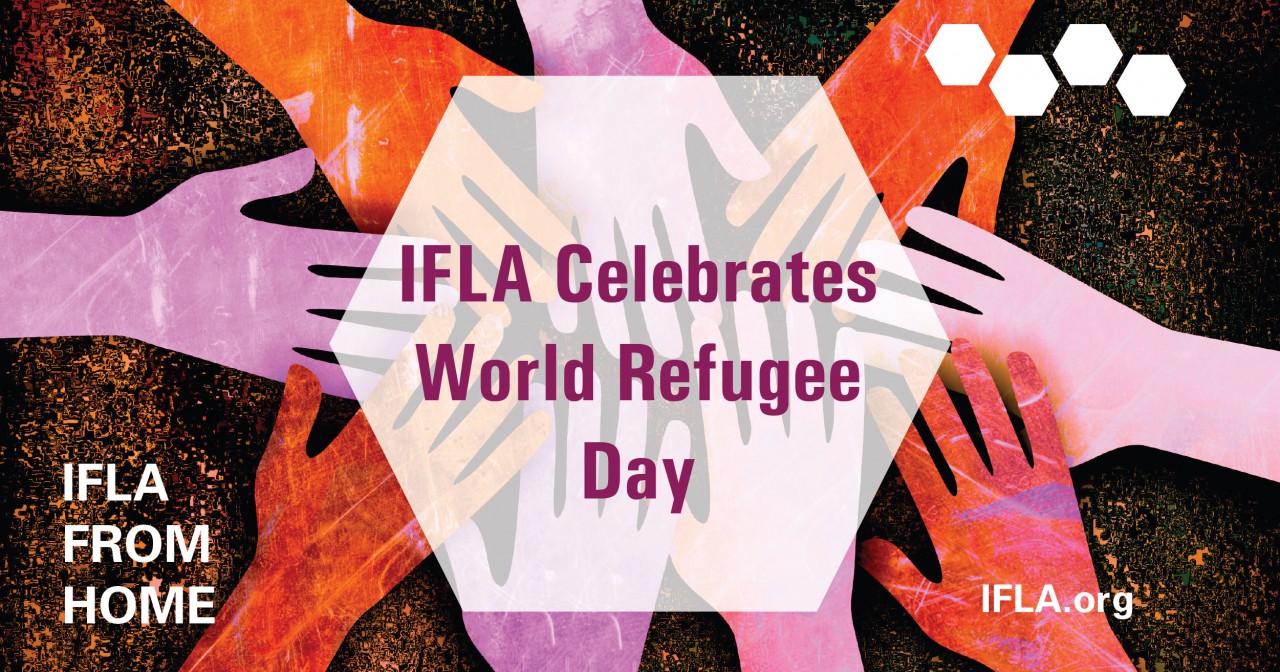
20 June is World Refugee Day, designated by the United Nations to honour refugees around the globe. This year’s theme is ‘Every Action Counts’.
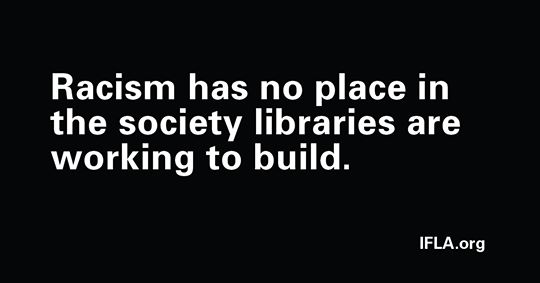
IFLA is proud to support World Refugee Day not only as part of its ongoing support of the UN’s Sustainable Development Goals, but also as part of its ongoing advocacy and deep commitment to the enduring value and role of libraries. Read IFLA’s recent statement, condemning all forms of racism and discrimination.
At the global level, the IFLA Section on Library services to people with Special Needs (LSN) is working on its International Guidelines for Library Services to Refugees, Immigrants, Migrants, and Asylum Seekers.
The proposed Guidelines will provide libraries worldwide with effective methods of serving refugees. While these standards are currently under development, a number of interesting milestones have already been achieved.
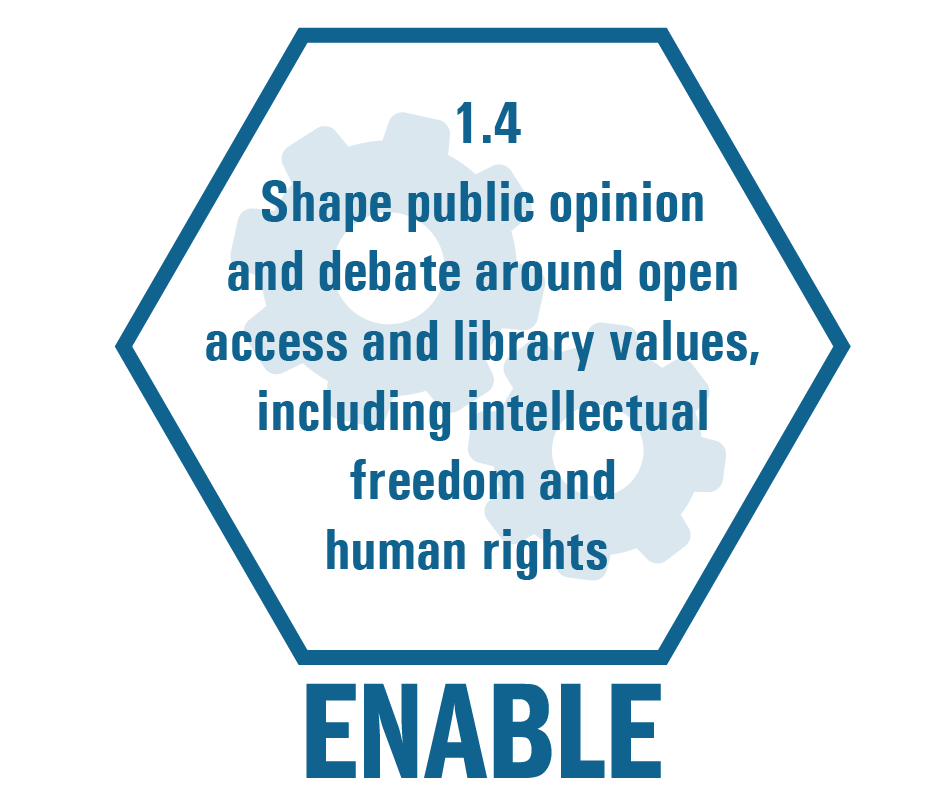 The Guidelines are being collaboratively developed by Goethe Institute with the support of IFLA’s Sections on Public Libraries, Library Services to Multicultural Populations, and Library Services to People with Print Disabilities, with Despina Gerasimidou as editor-in-chief.
The Guidelines are being collaboratively developed by Goethe Institute with the support of IFLA’s Sections on Public Libraries, Library Services to Multicultural Populations, and Library Services to People with Print Disabilities, with Despina Gerasimidou as editor-in-chief. 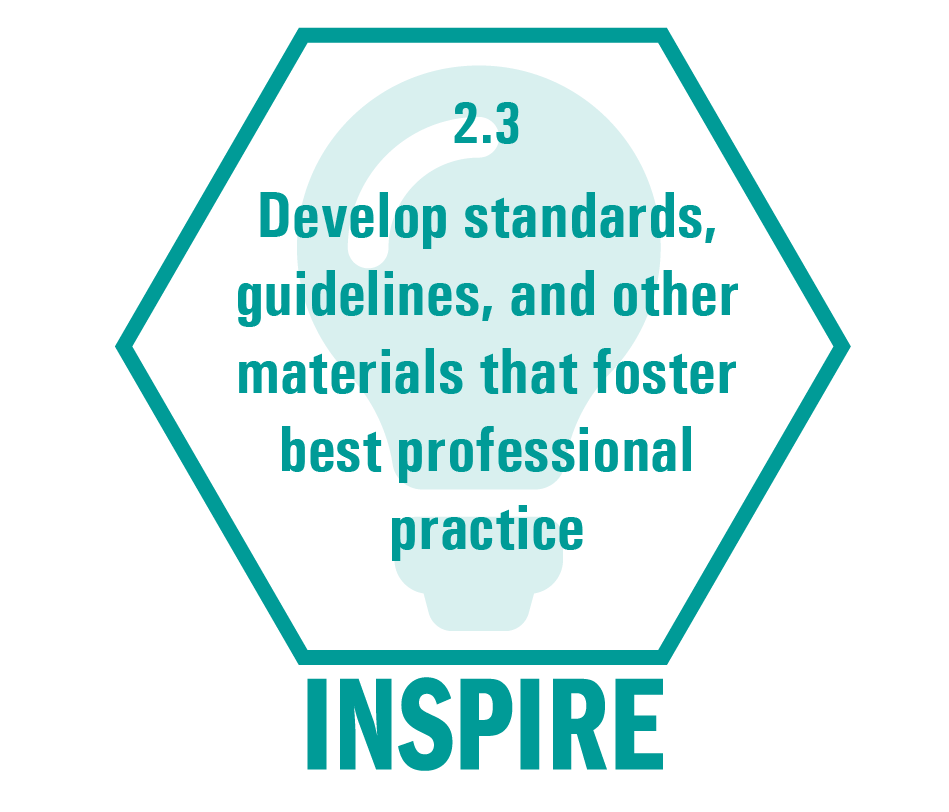 These guidelines represent an example of action taken for the advancement of the global library community, closely aligned with IFLA’s Strategy, specifically Key Initiatives 1.4 and 2.3.
These guidelines represent an example of action taken for the advancement of the global library community, closely aligned with IFLA’s Strategy, specifically Key Initiatives 1.4 and 2.3.
With work on the Guidelines making substantial progress, it is already possible to share some highlights, in order to start to illustrate what libraries can deliver, both globally and locally.
The Global Picture: Initial Results from the Survey of Library Perspectives
At the end of 2019, the IFLA working committee on the international guidelines for Library Services to refugees conducted a global survey to gather effective practices. The group is now conducting in-depth interviews with a selection of libraries who completed the survey. Let’s have a closer look to some first findings.
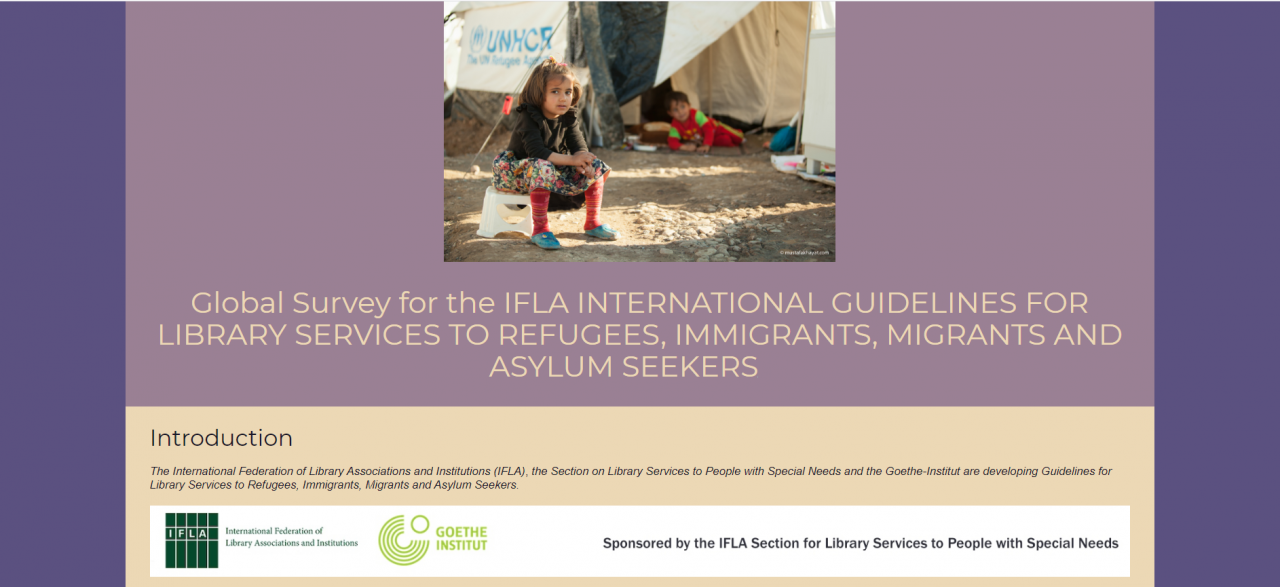
Refugees, along with immigrants, migrants, and asylum seekers are forced to flee their home country under extreme stress or violence to escape conflict, persecution or the consequences of climate change, as set out by the World Bank. Upon arrival in a new country they face a range of obstacles and need information about their legal status, food, housing, navigation in the new country, education, and employment. To locate this information, they may need access to the internet, computers and sometimes technology training. As they try to become familiar with a new culture and language, they may also face discrimination from the government and/or residents in their new countries.
Libraries can help refugees feel welcome by both providing the same quality of service to them as to other patrons, providing services that meet their specific needs, and by helping to remove or address barriers that refugees face in making a new country their home.
The survey results in a nutshell:
- 353 responses from 32 countries
- 75% of responding libraries offer library cards
- Services most offered include: access to the Internet (93.2%); access to resources (83.5%); access to news (79.7%); computer classes (60.3%); language practice (56.1%); community referrals (53.6%); and story times for children (53.2%).
- 68% have offered these services for more than 5 years
- Over 50% cooperate with other organizations in the community
- Besides the 38.6% of respondents who reported having no immigrants in their community, barriers to serving this population include lack of resources (26.3%); and other agencies providing this service (24.6%)
The Local Picture: The Case of Denver Public Library
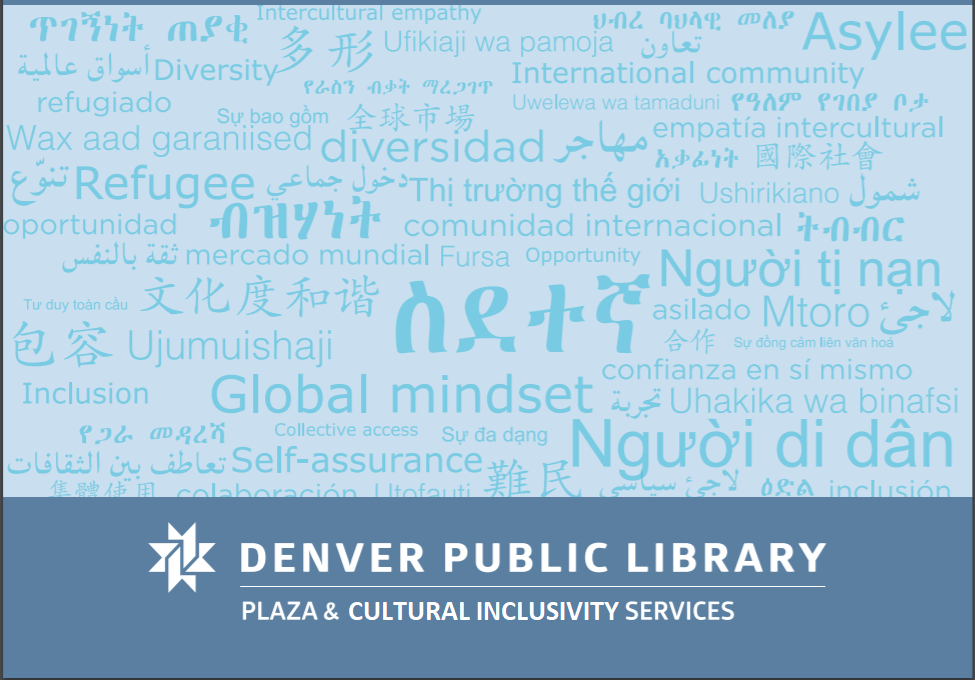
In order to prepare the Guidelines, the team leading the work has been carrying out interviews with teams in those libraries already working to help refugees, immigrants, migrants and asylum seekers.
To give just one example, the Denver Public Library (DPL) has been focusing on providing dedicated services to refugees, immigrants, migrants, and asylum seekers since 2005 with their Plaza Program. The mission of DPL’s Department of Cultural Inclusivity is to collaborate with Denver’s multicultural community to create equitable opportunities for learning, discovery, and connection.
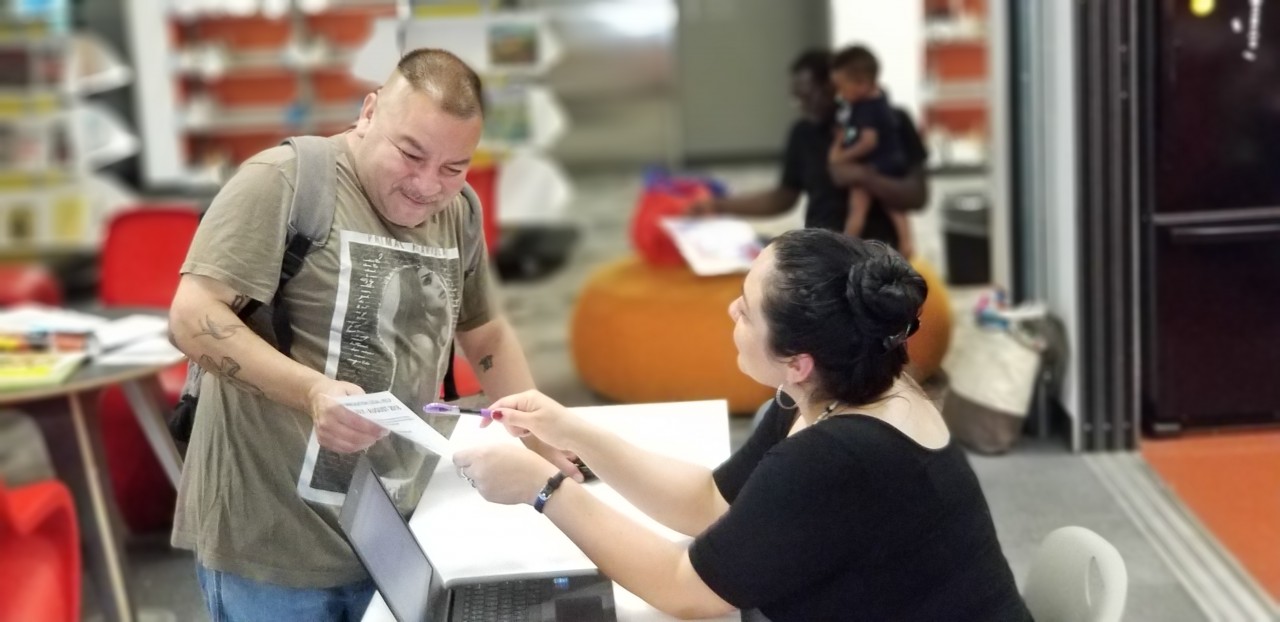
Since 2005 the program has grown substantially, and now provides online and in-person services in 11 branches with 40 staff paid by a combination of city funds and a Denver Foundation Grant. Paid staff represent many of the cultural populations residing in the Denver area. The Plaza Program in the branches is free and open to all with no registration required. It is a place where immigrants from all over the world can connect with resources and meet new people. These programs are designed to be free, open, and very welcoming, with as few barriers as possible. They are “drop-in sites open to adults, families, and children – people of all ages”. No personal information is collected from users to protect their privacy.
Nicanor Diaz, the Immigrant Services Manager and Virginia Vassar Aggrey who runs the Plaza Program, identify the program’s needs-based approach: “The Plaza Program is focused on providing spaces and services for newcomers to Denver and services are based on needs expressed by users”.
Services currently offered include:
-
 Free library registration and library cards
Free library registration and library cards
- English language classes and discussion practice
- Citizenship classes
- Free use of computers, computer training, printers, and copiers
- Connection with community resources for housing, health, employment, sporting, and leisure services
- Assistance in finding a job, starting a business, and homework help
- Use of tools such as sewing machines, audio, and video recording equipment, 3D printers, and coding classes
- Stories, songs, rhymes, arts, and crafts, and more for babies, young children, and their parents, offered in English and Spanish
- Legal advice on immigration and assistance from social workers
- Cultural celebrations such as Dia del Nino, Lunar New Year, Welcoming Week, and World Refugee Day
- Staff who speak 13 languages of people in the Denver metropolitan area
- Guides for newcomers in 13 languages that give an overview of library services and jargon to new users of a library.

In addition, a special part of the website, Mementos from Home, features immigrants recording stories about items they brought with them to the United States and what those objects mean to them.
The library distributed a quarterly newsletter, Conexiones which highlights Spanish programming at the library and is developing a website, Facebook page, and a core resource collection in Spanish and other languages. These services are highlighted in the branches where there is a larger number of Spanish-speaking users.

Nicanor and Virginia describe how the team working to support refugees and other newcomers continued to support its users when the COVID-19 Pandemic struck:
“The Denver Public Library closed physically, as did most libraries in the state. We quickly began to plan how we could continue to offer services in an online and remote environment. Amongst the solutions we found, people can now schedule a one-on-one appointment with a library staff member to discuss any topic of interest or need, aka questions about citizenship, homework help, and help with technology. One user wanted help in preparing for a driving test. The Library also offers Online English Conversation Groups 5 days a week and an online Citizenship Study Group 1 day a week. These are free and people are encouraged to sign up and participate. But, the two major barriers in providing service during the pandemic are access to technology and how to use the technology. Many people rely on the library for internet access. With the library closed, this access is limited as are computer classes.”
The Denver Public Library will observe World Refugee Day 2020 with a series of virtual events and is just one example of how libraries continuously meet the needs of refugees, immigrants, migrants, and asylum seekers.
This highlight is just one example of the content from the upcoming International Guidelines of Library Services to refugees.
Conclusion
World Refugee Day is an opportunity to build empathy and recognize the strength and resilience of refugees in rebuilding their lives, as underlined by the UN High Commission for Refugees.
While it falls every year on 20 June, this year the need to raise awareness of the rights and needs of refugees is clearer than ever before.
As the United Nations itself underlines, “the COVID-19 pandemic and the recent anti-racism protests have shown us how desperately we need to fight in order to bring about change.”
Libraries, as key drivers in social change play a key role in creating an all-inclusive and equitable world: a world where no one is left behind.
In line with this year’s World Refugee Day theme and the year-round commitment of libraries to providing equal service to every community member, we can all make every action count!
Contact the authors
Want to learn more about the International Guidelines of Library Services to Refugees, Immigrants, Migrants and Asylum Seekers?
Contact us:
Nancy Bolt
Chair, IFLA Section on Library Service to People with Special Needs (LSN)
nancybolt@earthlink.net
or
Despina Gerasimidou
Editor-in-chief, International Guidelines of Library Services to Refugees, Immigrants, Migrants and Asylum Seekers
despina.gerasimidou@ifla.org